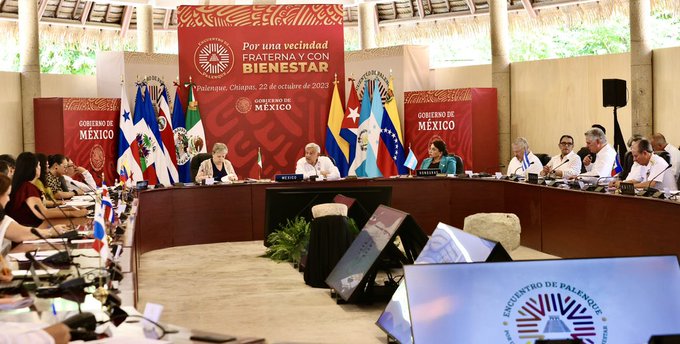At the end of the meeting, to which presidents and representatives of 12 countries in the region attended, Beatriz Gutiérrez, wife of Mexican Head of State, Andrés Manuel López Obrador, saw off Díaz-Canel at the Chiapas Airport.
On X, formerly Twitter, the Cuban president thanked López Obrador for holding the meeting, which focused on irregular migration, its multiple causes and consequences, and proposals for possible solutions.
Díaz-Canel stressed on social media that Cuba has repeatedly warned of the responsibility of the Government of the United States “with the permanent incitement to irregular migration of Cubans who arrive or intend to arrive at its borders, with measures to stifle economy and facilities for migrants of our country.
This behavior affects Cuba, the Cuban migrant, and the United States and has also consequences for transit countries in the region, who face the challenges of irregular migration, he added.
We reiterate Cuba’s firm commitment to regular, safe, and orderly migration,” the head of State stressed at the 10th Conference on Migration.
The event, which took place in the Mexican city of Palenque, sought in its Final Declaration to build comprehensive solutions to migratory flows, based on the following objectives: taking into account their political-economic and social causes and climate change; external factors such as discrimination and distribution of wealth that affect entire populations.
At the end of the event, Deputy Foreign Minister Carlos Fernández de Cossío recalled in a press briefing that three factors influenced Cuban emigration: first, the economic blockade; second, the active policy of encouraging Cuban emigration through irregular channels, with similar privileged treatment for Cuban migrants in the United States; and third, the Cuban Adjustment Act.
jrr/iff/jcm/mks









